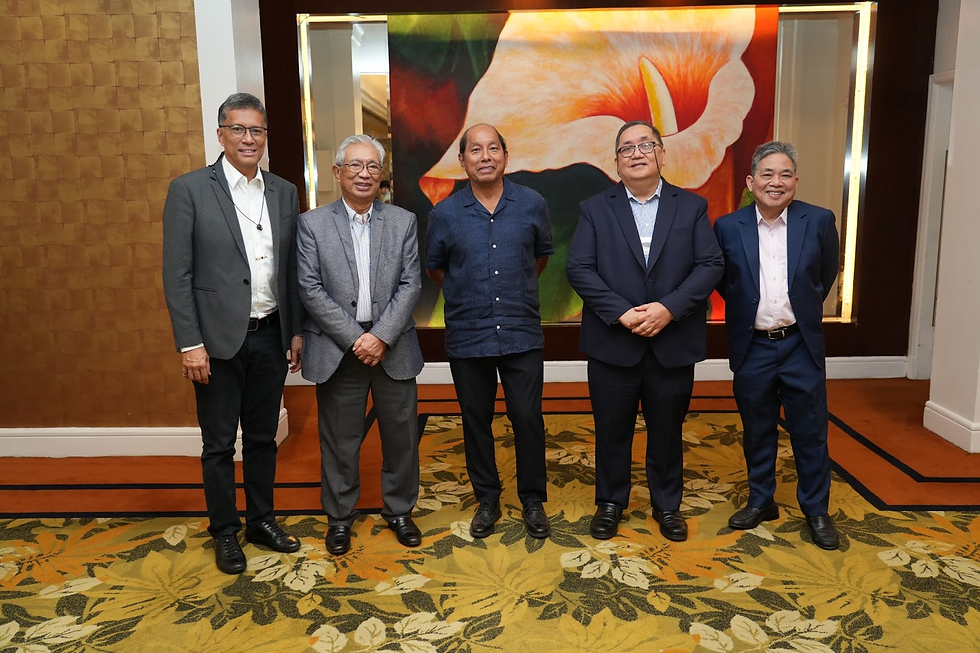AER SEEKS TRAIN AMENDMENTS TO ANTI-POOR, PRO-RICH ANGARA BILL
- Action for Economic Reforms
- Sep 26, 2017
- 3 min read
PRESS RELEASE 26 September 2017
AER seeks TRAIN amendments to anti-poor, pro-rich Angara bill
Dubbing the Angara bill as a derailed TRAIN, civil society advocates led by Action for Economic Reforms (AER) urge the members of the Senate to amend the Angara bill in the plenary deliberations and focus on keeping the original proposals of the Department of Finance (DOF) like the higher income tax relief for the working classes; a higher marginal tax rate for the richest one percent; fuel and auto taxes and the removal of VAT exemptions that will generate significant revenue not only to finance education, health and public transportation but also to ensure the funds for the cash transfers for the poor and near poor.
AER criticizes the attempt of Sen. Sonny Angara, Chair of the Senate Committee on Ways and Means to present his proposals as pro-poor with the negligible increase in fuel excise tax in the first year. The group says the lower fuel tax will mean less revenue, thus restricting spending for the poor, and will only benefit the richest 10 percent who consume more than half of total fuel production.
“The reduced rates on fuel tax will mean a slide in targeted revenues from PhP70 billion to PhP40 billion. The Angara bill will limit the unconditional cash transfer to ten million households only, excluding around two million poor households in the 5th income decile, who should be also receiving the transfer,” said Jo-Ann Diosana, an AER economist.
Angara’s Senate Bill 1592 also lowered the non-taxable income to only PhP150,000 from the DOF’s initial proposal of PhP250,000 per year. On the order hand, the marginal tax rate for the richest individuals is cut from the proposed 35 percent rate to 32 percent.
“His income tax proposal will translate into a higher burden for low-income earners in the informal sector, like vendors and service workers. This clearly shows the bias of the bill towards the richest Filipino taxpayers while the low-wage workers and marginal income earners are denied the relief,” Diosana added.
Jenina Joy Chavez, an executive officer of AER, also expresses alarm over the retention of many VAT exemptions and extension of zero-rating to some private interests.
“The generous VAT exemptions can predict what will happen to the rationalization of fiscal incentives—it will likely be watered down, given Angara’s accommodation with respect to VAT exemptions. It shows the bias of senators like Angara to protect vested interests,” said Chavez.
The Angara bill maintains the VAT exemptions of the business process outsourcing sector, cooperatives, power transmission, renewable energy, housing, residential leasing, Red Cross, Girl Scouts, and others.
“It is necessary to clean up the VAT system and plug tax leakage by lifting these unnecessary exemptions so that more revenues can be raised for pro-poor spending. Unfortunately, Senator Angara had chosen to kowtow to the interests of a few rather than look after the welfare of the majority,” Chavez said.
In an attempt to augment the revenue targets from TRAIN, the bill includes new taxes from cosmetic surgeries, coal, and dividends. AER said these new measures were inserted in TRAIN even when their revenue potential, economic impact, and, more importantly, their impact on the people’s health and livelihood have not been studied.
Health advocates and medical groups also proposed to Angara to include the tobacco tax increase in TRAIN, which is expected to increase government revenues by P40 billion to P60 billion. But this fell on deaf ears. (END)



